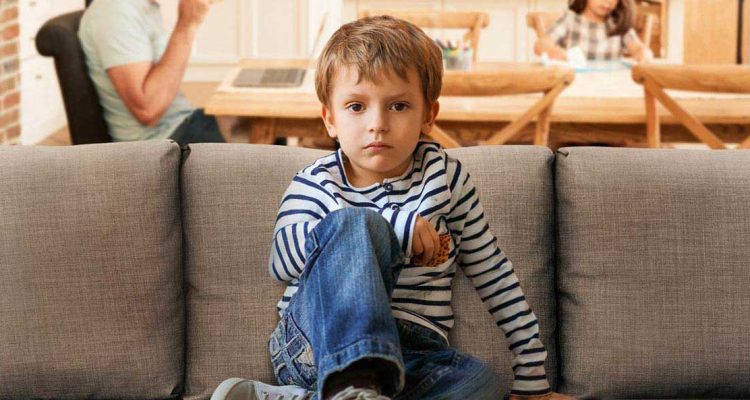“All parents deal with children who are not what they imagine,” “My parents really didn’t want to have a gay son,” reflects NY Times bestselling author and world-renowned psychologist Andrew Solomon. “I wanted to see how other families managed. But I don’t wanna know just about families of gay people. I wanted to look as widely as I could.”
READ MORE: 55 Must-See Films: The 2018 Fall Movie Preview
Solomon’s book “Far From The Tree,” the award-winning completion of a decade-long research project which included hundreds of interviews with families, has made its way to the big screen. It may sound weird to get overly excited about a documentary—but Solomon’s comprehensive journey (700-page) through the lives of families deemed “abnormal” mandated such commotion. Unfortunately, it never matches the book’s stirring, extensive nature.
READ MORE: Toronto International Film Festival: 22 Most Anticipated Movies
Helmed by seasoned documentarian Rachel Dretzin (“FRONTLINE”) and produced by Solomon himself, “Far From The Tree” takes a look into the lives of six families, each of which possesses a unique story regarding their child’s vertical and horizontal identity in relation to their parent(s). Through six harrowing depictions, a light, albeit an ostensible one, is cast upon the “gap” between children who are different from their parents.
For those unfamiliar with his story, Solomon repressed his sexuality as a child, as his parents grew devastated over the reality that their son was gay. With his mother having died without ever truly accepting her son, Solomon set out to study families with children born with conditions or inclinations that society still considers out of the ordinary, or as the film aptly phrases it, extraordinary.
Using Solomon’s personal experience as a launchpad into the lives of others, Dretzin, unfortunately, pares down a dense piece of literature into 93 minutes. In an attempt to mend the rift between vertical and horizontal identity, the lives of six families are emptily lumped together and tasked with explaining the gap a parent often experiences with their unique child.
It would have been nice if the director (or even Solomon) had expanded upon the peculiarities of each family dynamic (as Solomon does so well in his book) with an extra 30-40 minutes added to the runtime, but I guess there’s only so much the heart can take, because this film packs an emotional punch nonetheless.
Among the six, we encounter Jack, an autistic boy who struggles to communicate with his parents and vice versa.“It was overwhelming, I didn’t want it, I didn’t want it” Jack’s mother remarks. Though the dynamic between the 13-year-old and his parents is initially disheartening, through miraculous therapy, headway is made, resulting in the most affecting account of the bunch. Then there’s Leah and Joe, a married couple, both living with dwarfism, ultimately proving love has no boundaries. The two are in the midst of trying to have a child, yet they toil with the possibility of it also being born with the condition. While their dilemma is a daunting one, the couple is tenacious and confident, even when someone “average” passes them by remarking, “Man, if I were you, I would kill myself.”
The documentary, replete with a harrowing and encouraging atmosphere at this point, takes an awkwardly dark detour with the account of 16-year-old Trevor Reese, who one day, decided to slice the throat of an eight-year-old boy. Now in prison for first-degree murder, this part of the film focuses less on Trevor and more on the parents who till this day, wrestle with what may have driven Trevor’s actions. “That first month or two after, I would run right down the street hoping to get run over. I thought that if I died, it would help atone for the other death,” laments Trevor’s father. “But there’s no reconciling on this issue.” Given the stark difference in tone, this doesn’t mean the story of Trevor and his family fails to match the visceral merit of the others, but it is, again, a very dark inclusion to a rather inspiring group of families.
Despite the jarring tone shift, most of these stories strike a hopeful note and inspire viewers to embrace each other’s differences and the extraordinary nature of those differences. Nevertheless, the invigorating sentiment could have been more profound as the viewers’ time spent with each family is short-lived, failing to parse through the intricacies of each situation.
The central thesis of “We are all human” is ripe for the picking if you follow your heart rather than your head, but it’s hard to ignore the missed opportunities. I was easily moved by the individuals at hand, but one could only wish the cursory mini-documentations were stretched out and allowed to breathe and speak on their own terms. [C+]

